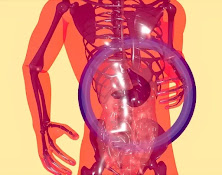In the quest for effective weight loss, it's not uncommon to
hear about various diets, exercise regimens, and supplements that promise quick
results. But what if the key to successful and sustainable weight loss lies
within you, specifically, in your gut? Emerging research is shedding light on
the fascinating connection between gut health and weight loss. In this blog,
we'll delve into this symbiotic relationship and explore how nurturing your gut
can lead to shedding those extra pounds.
**The Gut Microbiome: A Thriving Ecosystem**
Your gut, also known as the gastrointestinal tract, is home to trillions of microorganisms, collectively referred to as the gut microbiome. These microscopic inhabitants play a pivotal role in your overall health, affecting digestion, immune function, and even mental well-being. When it comes to weight loss, the gut microbiome's influence is equally significant.
**Balancing Beneficial Bacteria**
A healthy gut microbiome thrives on diversity, with a balance of beneficial bacteria that aid digestion, extract nutrients from food, and even influence your appetite. An imbalance in this microbial ecosystem, known as dysbiosis, can lead to a range of health issues, including weight gain and obesity.
**Gut Health and Inflammation**
Inflammation is a common denominator in many health
problems, including obesity. An imbalanced gut microbiome can contribute to
chronic inflammation throughout the body. Chronic inflammation can impair the
body's ability to regulate blood sugar, control appetite, and store fat, making
it difficult to shed excess pounds.
**Metabolism and Gut Health**
Your gut health has a direct impact on your metabolism, the
rate at which your body converts food into energy. A diverse and healthy gut
microbiome can promote efficient metabolism and help you burn calories more
effectively. Conversely, an imbalanced gut may lead to slower metabolism and
weight gain.
**Gut-Brain Axis and Appetite Control**
The gut communicates with the brain through the gut-brain
axis, a complex network of nerves and chemical messengers. This communication
plays a crucial role in regulating appetite and food cravings. A healthy gut
microbiome can help you feel satisfied with smaller portions and make it easier
to resist unhealthy food temptations.
**Nurturing Your Gut for Weight Loss**
1. **Diet**: Incorporate a diverse range of fiber-rich foods, such as fruits, vegetables, and whole grains, to feed beneficial gut bacteria.
2. **Probiotics**: Consider adding probiotic-rich foods like yogurt, kefir, and sauerkraut to your diet or take probiotic supplements to support a healthy gut microbiome.
3. **Prebiotics**: Consume prebiotic-rich foods like garlic, onions, and leeks to provide nourishment for beneficial gut bacteria.
4. **Stress Management**: Chronic stress can harm your gut health. Practice stress-reduction techniques such as meditation, yoga, or deep breathing exercises.
5. **Adequate Sleep**: Prioritize a good night's sleep as insufficient sleep can negatively affect your gut microbiome and appetite regulation.
6. **Regular Exercise**: Physical activity can promote a healthy gut microbiome and support weight loss.
Remember that individual responses to gut health interventions may vary, and consultation with a healthcare professional or registered dietitian can help you develop a personalized plan.
In conclusion, the connection between gut health and weight
loss is a promising avenue in the pursuit of a healthier, leaner you. By
nurturing your gut microbiome through a balanced diet, probiotics, and stress
management, you can unlock the secret to sustainable weight loss and improved
overall health. Your gut may hold the key you've been searching for on your
weight loss journey.



